|
Books Should Be Free Loyal Books Free Public Domain Audiobooks & eBook Downloads |
|
|
Books Should Be Free Loyal Books Free Public Domain Audiobooks & eBook Downloads |
|
Poetry |
|---|
|
Book type:
Sort by:
View by:
|
By: George W. Sands (ca. 1824-1874) | |
|---|---|
 Mazelli, and Other Poems
Mazelli, and Other Poems
| |
By: George Wharton Edwards (1859-1950) | |
|---|---|
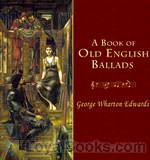 A Book of Old English Ballads
A Book of Old English Ballads
In this selection... the aim has been to bring within moderate compass a collection of these songs of the people which should fairly represent the range, the descriptive felicity, the dramatic power, and the genuine poetic feeling of a body of verse which is still, it is to be feared, unfamiliar to a large number of those to whom it would bring refreshment and delight. | |
By: George William Russell (1867-1935) | |
|---|---|
 The Nuts of Knowledge Lyrical Poems Old and New
The Nuts of Knowledge Lyrical Poems Old and New
| |
By: Gertrude Stein (1874-1946) | |
|---|---|
 Tender Buttons
Tender Buttons
The time came when there was a birthday. Every day was no excitement and a birthday was added, it was added on Monday, this made the memory clear, this which was a speech showed the chair in the middle where there was copper. A kind of green a game in green and nothing flat nothing quite flat and more round, nothing a particular color strangely, nothing breaking the losing of no little piece. The teasing is tender and trying and thoughtful. Extracts from Tender Buttons. | |
 Geography and Plays
Geography and Plays
Geography and Plays is a 1922 collection of Gertrude Stein's "word portraits," or stream-of-consciousness writings. These stream-of-consciousness experiments, rhythmical essays or "portraits", were designed to evoke "the excitingness of pure being" and can be seen as literature's answer to Cubism, plasticity, and collage. Although the book has been described as "a marvellous and painstaking achievement in setting down approximately 80,000 words which mean nothing at all," it is considered to be one of Stein's seminal works. | |
By: Giacomo Leopardi (1798-1837) | |
|---|---|
 Poems of Giacomo Leopardi
Poems of Giacomo Leopardi
This is a volume of poems by Giacomo Leopardi. | |
By: Gilbert Parker (1862-1932) | |
|---|---|
 A Lover's Diary
A Lover's Diary
| |
 Embers
Embers
| |
By: Giles Fletcher (1549?-1611) | |
|---|---|
 Elizabethan Sonnet Cycles Phillis - Licia
Elizabethan Sonnet Cycles Phillis - Licia
| |
By: Guy Wetmore Carryl | |
|---|---|
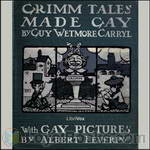 Grimm Tales Made Gay
Grimm Tales Made Gay
A comic rendering in verse of well-loved Fairy Tales of the Brothers Grimm, each ending with a moral and full of puns. The titles of the tales themselves make another verse. | |
By: H. L. (Henry Louis) Stephens (1824-1882) | |
|---|---|
 Death and Burial of Poor Cock Robin
Death and Burial of Poor Cock Robin
| |
By: Hannah Flagg Gould (1788-1865) | |
|---|---|
 Mother's Dream, and Other Poems
Mother's Dream, and Other Poems
This is a volume of poetry by Hannah Flagg Gould. Ms Gould was an immensely popular author of children's poetry during her lifetime, and her poems will still be enjoyed by children as well as adults today. - Summary by Carolin | |
By: Hannah Lavinia Baily (1837-1921) | |
|---|---|
 By the Sea, and Other Verses
By the Sea, and Other Verses
This is a collection of poetry by Hannah Lavinia Baily. They describe a number of different settings, prominently the sea in the titular poem, and bring in contemporary as well as mythical themes. - Summary by Carolin | |
By: Harriet Beecher Stowe (1811-1896) | |
|---|---|
 Eliza Crossing the River
Eliza Crossing the River
LibriVox volunteers bring you 9 recordings of Eliza Crossing the River by Harriet Beecher Stowe. This was the Fortnightly Poetry project for April 27th, 2014.Harriet Beecher Stowe was an American abolitionist and author. Her novel Uncle Tom's Cabin (1852) was a depiction of life for African Americans under slavery; it reached millions as a novel and play, and became influential in the United States and United Kingdom. It energized anti-slavery forces in the American North, while provoking widespread anger in the South... | |
By: Harry Graham (1874-1936) | |
|---|---|
 Misrepresentative Women
Misrepresentative Women
After writing two volumes on Misrepresentative Men, in which Harry Graham satirized ancient and contemporary famous men, a volume on the famous ladies was necessary. This volume contains several humorous poems on famous women, as well as some other humorous verses. Summary by Carolin | |
By: Heinrich Hoffmann (1809-1894) | |
|---|---|
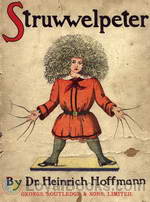 Struwwelpeter: Merry Tales and Funny Pictures
Struwwelpeter: Merry Tales and Funny Pictures
Struwwelpeter (Slovenly Peter) is an illustrated collection of humorous children’s poems describing ludicrous and usually violent punishments for naughty behavior. Hoffmann, a Frankfurt physician, wanted to buy a picture book for his son for Christmas in 1844. Not impressed by what the stores had to offer, he instead bought a notebook and wrote his own stories and pictures. While Struwwelpeter is somewhat notorious for its perceived brutal treatment of the erring children, it has been influential on many later children’s books, most notably Charlie and the Chocolate Factory. | |
By: Helen Hay Whitney (1875-1944) | |
|---|---|
 The Rose of Dawn A Tale of the South Sea
The Rose of Dawn A Tale of the South Sea
| |
 Some Verses
Some Verses
This is a collection of 24 sonnets and 27 poems in other form by American poet, writer, racehorse owner and breeder, socialite, and philanthropist Helen Hay Whitney. - Summary by Carolin | |
By: Helen Hunt Jackson (1830-1885) | |
|---|---|
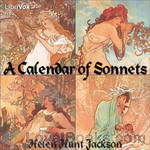 A Calendar of Sonnets
A Calendar of Sonnets
Helen Hunt Jackson is probably most famous for her work on behalf of Native Americans’ rights. However, this short volume presents a sonnet for each month of the year, devoted simply and beautifully to the shifting wonder of nature through the seasons. | |
By: Hélène A. Guerber (1859-1929) | |
|---|---|
 The Book of the Epic
The Book of the Epic
| |
By: Henry Abbey (1842-1911) | |
|---|---|
 Stories in Verse
Stories in Verse
| |
By: Henry Hart Milman (1791-1868) | |
|---|---|
 Nala and Damayanti and Other Poems
Nala and Damayanti and Other Poems
| |
By: Henry John Newbolt (1862-1938) | |
|---|---|
 Poems: New and Old
Poems: New and Old
| |
By: Henry Lawson (1867-1922) | |
|---|---|
 Shame of Going Back
Shame of Going Back
Henry Archibald Hertzberg Lawson was an Australian writer and poet. Along with his contemporary Banjo Paterson, Lawson is among the best-known Australian poets and fiction writers of the colonial period and is often called Australia's "greatest short story writer". | |
 Verses Popular And Humorous (Version 2)
Verses Popular And Humorous (Version 2)
Verses, Popular and Humorous was the second collection of poems by Australian poet Henry Lawson. It features some of the poet's earlier major works, including "The Lights of Cobb and Co", "Saint Peter" and "The Grog-An'-Grumble-Steeplechase". Most of the poems in the volume had been written after the publication of In the Days When the World was Wide and Other Verses in 1896. The original collection includes 66 poems by the author that are reprinted from various sources. Later publications split the collection into two separate volumes: Popular Verses and Humorous Verses, though the contents differed from the original list... | |
By: Henry More (1614-1687) | |
|---|---|
 Democritus Platonissans
Democritus Platonissans
| |
By: Henry Thayer Niles (1825-1901) | |
|---|---|
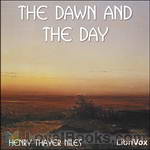 The Dawn and the Day
The Dawn and the Day
The Dawn and the Day, or, The Buddha and the Christ, Part 1 is a text similar to the epic poetry of Homer or, more accurately, classic Hindu texts, such as the Baghavad-Gita. | |
By: Henry Timrod (1828-1867) | |
|---|---|
 The Poems of Henry Timrod
The Poems of Henry Timrod
| |
By: Henry Van Dyke (1852-1933) | |
|---|---|
 Golden Stars And Other Verses Following "The Red Flower"
Golden Stars And Other Verses Following "The Red Flower"
| |
 Music and Other Poems
Music and Other Poems
| |
 Songs out of Doors
Songs out of Doors
| |
 The White Bees
The White Bees
| |
By: Henry Vaughan (1621-1695) | |
|---|---|
 Poems of Henry Vaughan, Silurist, Volume II
Poems of Henry Vaughan, Silurist, Volume II
MANUAL OF SURGERY, OXFORD MEDICAL PUBLICATIONSBY ALEXIS THOMSON, F.R.C.S.Ed.PREFACE TO SIXTH EDITION Much has happened since this Manual was last revised, and many surgical lessons have been learned in the hard school of war. Some may yet have to be unlearned, and others have but little bearing on the problems presented to the civilian surgeon. Save in its broadest principles, the surgery of warfare is a thing apart from the general surgery of civil life, and the exhaustive literature now available on every aspect of it makes it unnecessary that it should receive detailed consideration in a manual for students... | |
By: Henry Wadsworth Longfellow | |
|---|---|
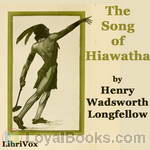 Hiawatha
Hiawatha
I sing the Song of Hiawatha,Brave of heart and strong of arm.Daughter’s son of old Nokomis,Fathered by the harsh West Wind. With its regular, beating rhythm, the Song of Hiawatha has often been parodied, but in truth, it is a powerful, emotional epic; a hero’s life, his loves and suffering. The legends and traditions of the North American Indian swirl together through the tale like a mountain stream, tumbling white over the rocks, and caressing the mossy tree roots. | |
 Evangeline
Evangeline
Evangeline is one of Longfellow’s most popular poems and was once a great favorite with the American people. For many years almost every school child studied this poem during the middle school years. Although the decline of the reputation of the once-idolized poet has also brought neglect to this classic, it is still a very touching and expertly written work of art. It is based upon the tragic expulsion of the French settlers from Acadia (located in the Canadian maritime provinces) during the French & Indian War (1754-1763)... | |
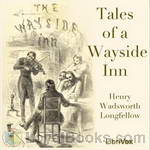 Tales of a Wayside Inn
Tales of a Wayside Inn
Mostly a collection of story-telling poems told by a group of friends in a tavern late one night. "Tales" includes the famous Paul Revere's ride, together with poems of many tales, countries and styles. | |
 Rainy Day
Rainy Day
MANUAL OF SURGERY, OXFORD MEDICAL PUBLICATIONSBY ALEXIS THOMSON, F.R.C.S.Ed.PREFACE TO SIXTH EDITION Much has happened since this Manual was last revised, and many surgical lessons have been learned in the hard school of war. Some may yet have to be unlearned, and others have but little bearing on the problems presented to the civilian surgeon. Save in its broadest principles, the surgery of warfare is a thing apart from the general surgery of civil life, and the exhaustive literature now available on every aspect of it makes it unnecessary that it should receive detailed consideration in a manual for students... | |
 The Song of Hiawatha An Epic Poem
The Song of Hiawatha An Epic Poem
| |
 The Children's Longfellow Told in Prose
The Children's Longfellow Told in Prose
| |
 Evangeline with Notes and Plan of Study
Evangeline with Notes and Plan of Study
| |
 Poems on Slavery
Poems on Slavery
This is a short volume of abolitionist poetry by Henry Wadsworth Longfellow, first published in 1842. As Wikipedia notes, Longfellow himself was not entirely satisfied with his work: "However, as Longfellow himself wrote, the poems were 'so mild that even a Slaveholder might read them without losing his appetite for breakfast'. A critic for The Dial agreed, calling it 'the thinnest of all Mr. Longfellow's thin books; spirited and polished like its forerunners; but the topic would warrant a deeper tone'... | |
By: Herman George Scheffauer (1878-1927) | |
|---|---|
 The Masque of the Elements
The Masque of the Elements
| |
By: Hezekiah Butterworth (1839-1905) | |
|---|---|
 The Story of the Hymns and Tunes
The Story of the Hymns and Tunes
| |
By: Hilaire Belloc (1870-1953) | |
|---|---|
 Cautionary Tales for Children
Cautionary Tales for Children
| |
By: Hilda Conkling (1910-1986) | |
|---|---|
 Poems By a Little Girl
Poems By a Little Girl
| |
By: Hilmar R. (Hilmar Robert) Baukhage (1889-) | |
|---|---|
 "I was there" with the Yanks on the western front, 1917-1919
"I was there" with the Yanks on the western front, 1917-1919
| |
By: Homer | |
|---|---|
 The Odyssey
The Odyssey
A wandering king who's a war-hero doomed to roam the earth by a vengeful God, a plethora of fantastic experiences, a wife battling the invasion of suitors who wish to replace her missing husband, a son in search of his father - the Odyssey is a rich tapestry of incredible experiences and unforgettable characters. A must-read classic for anyone who wants to understand the fundamentals of Western mythology, it is a sequel to the Illiad which recounts the magnificent saga of the Trojan War. The Odyssey continues on, describing the trials and tribulations of the Greeks under the leadership of Odysseus... | |
 The Iliad
The Iliad
A divinely beautiful woman who becomes the cause of a terrible war in which the gods themselves take sides. Valor and villainy, sacrifices and betrayals, triumphs and tragedies play their part in this three thousand year old saga. The Iliad throws us right into the thick of battle. It opens when the Trojan War has already been raging for nine long years. An uneasy truce has been declared between the Trojans and the Greeks (Achaeans as they're called in The Iliad.) In the Greek camp, Agamemnon the King of Mycenae and Achilles the proud and valiant warrior of Phthia are locked in a fierce contest to claim the spoils of war... | |
By: Horace Smith (1836-1922) | |
|---|---|
 Interludes being Two Essays, a Story, and Some Verses
Interludes being Two Essays, a Story, and Some Verses
| |
By: Horatio Alger, Jr. (1832-1899) | |
|---|---|
 Grand'ther Baldwin's Thanksgiving, with Other Ballads and Poems
Grand'ther Baldwin's Thanksgiving, with Other Ballads and Poems
Horatio Alger, better known for his juvenile fiction, also penned some great poetry. His Ballads, including the 8 war poems and his odes, are collected in this volume. | |
By: Howard D. Pollyen | |
|---|---|
 The Secret of the Creation
The Secret of the Creation
| |
By: Howard V. (Howard Vigne) Sutherland (1868-) | |
|---|---|
 Out of the North
Out of the North
| |
By: Hubert G. (Hubert Gibson) Shearin (1878-) | |
|---|---|
 A Syllabus of Kentucky Folk-Songs
A Syllabus of Kentucky Folk-Songs
| |
By: Hurlothrumbo | |
|---|---|
 The Merry-Thought: or the Glass-Window and Bog-House Miscellany Parts 2, 3 and 4
The Merry-Thought: or the Glass-Window and Bog-House Miscellany Parts 2, 3 and 4
| |
 The Merry-Thought: or the Glass-Window and Bog-House Miscellany. Part 1
The Merry-Thought: or the Glass-Window and Bog-House Miscellany. Part 1
| |
By: Isaac Watts (1674-1748) | |
|---|---|
 Watt's Songs Against Evil
Watt's Songs Against Evil
This small volume of inspirational verse is a collection of the timeless work of the hymnist and theologian, Isaac Watts. Carefully and tactfully conceived, each of these motivational poems contains a valuable lesson relevant to youth's quest for moral guidance in a world of uncertainties and unknowns. But lest these poems be construed as pedantic lectures demanding righteous behavior, the listener will be pleased to discover instead a series of uplifting narratives intended not to admonish but to advise, not to reprimand but to recommend... | |
 Watt's Songs Against Faults
Watt's Songs Against Faults
These superb poems by the hymnist and theologian Isaac Watts emphasize the importance of developing a positive moral outlook and stress the significance of maintaining vigilance to avoid the pitfalls of everyday life. But although Watts stresses the urgency of heeding the advice outlined in these verses, he delivers his message with divine charm and subtle counsel - never with chastisement, reprimand or rebuke. These inspiring works constitute a written ethical compass for all who are tempted... | |